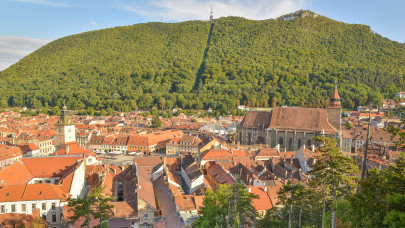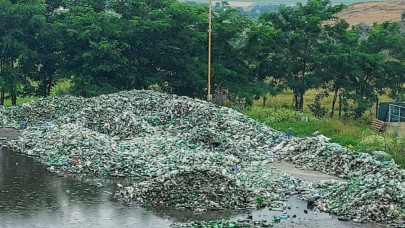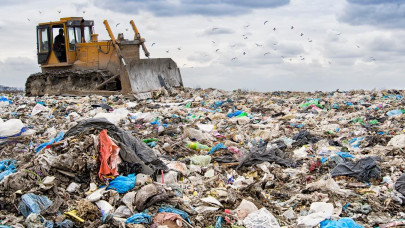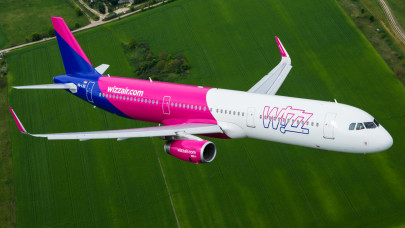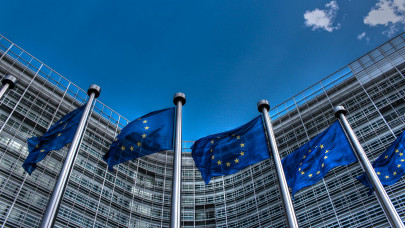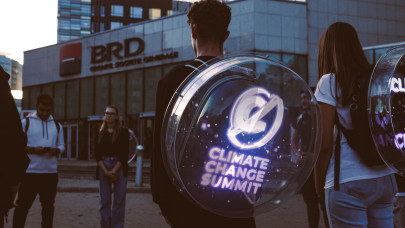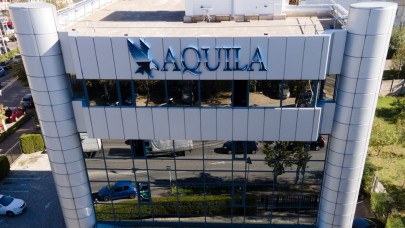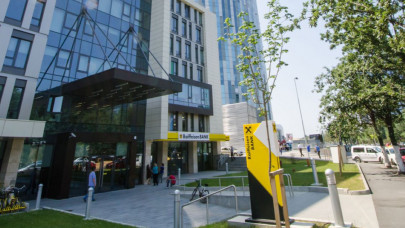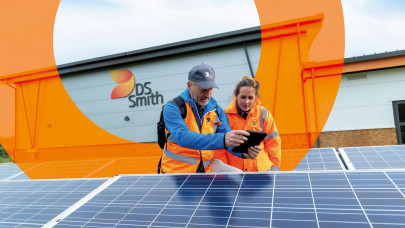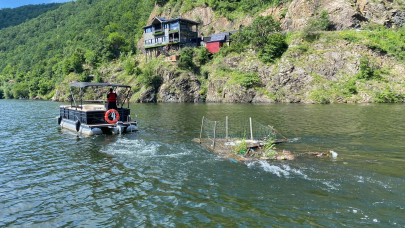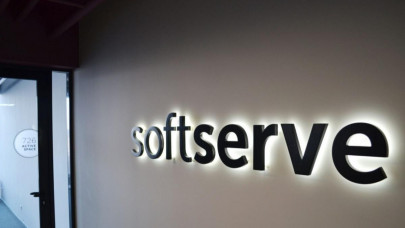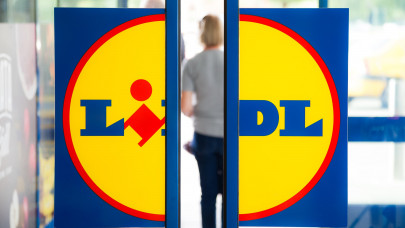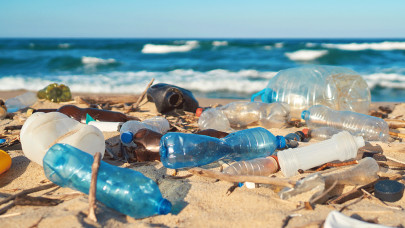Alina Oprea
| 18 August, 2023 at 4:45 PM
In the first quarter of 2023, greenhouse gas emissions generated by the economy of the European Union totaled 941 million tons of CO2 equivalent, a decrease of 2.9% compared to the same period in 2022 (969 million tons of CO2 equivalent), shows data published by the European Statistical Office (Eurostat).
Alina Oprea
| 17 August, 2023 at 5:30 PM
EGGER Romania is laying the groundwork for opening its sixth wood waste collection center.
Alina Oprea
| 17 August, 2023 at 3:20 PM
For 51% of employees, it is important that the employer is involved in environmental protection, according to a survey run by Genesis Property, among 1,307 respondents nationwide.
Alina Oprea
| 10 August, 2023 at 5:20 PM
Philips Romania and the Viitor Plus Association are planting 5,000 trees in Dolj County this year, exceeding the "Planting Together" campaign goal by approximately 33%.
Alina Oprea
| 10 August, 2023 at 2:30 PM
The Romcarbon company collected 94,802 tons of plastic waste from the market, in the 10 years of activity, of which 89% were from local sources and 11% from the European market.
Alina Oprea
| 7 August, 2023 at 10:10 AM
Brasov City Hall wants to reduce pollution by 426 tons of nitrogen oxides and 16 tons of dust in the next 4 years.
Alina Oprea
| 3 August, 2023 at 5:00 PM
The Zentiva Group in Romania, the largest producer of generic drugs locally, completed the planting of 38,800 trees in the Făgăraș Mountains this year.
Alina Oprea
| 3 August, 2023 at 11:30 AM
Between January and July 2023, the sanitation operator collected 1,026 tons of selective glass waste in Iași County.
Alina Oprea
| 2 August, 2023 at 1:46 AM
Romania has a non-recyclability rate of 89%, which means that we have the highest degree of resource mortality in Europe, says Constantin Damov, president of the Coalition for the Circular Economy and of the Green Group.
Alina Oprea
| 1 August, 2023 at 2:30 PM
Wizz Air has reduced its carbon emission intensity by another 11%. The airline has published its annual sustainability update, showing progress towards its sustainability goals.
Alina Oprea
| 31 July, 2023 at 9:30 AM
The European Commission has approved a €2.36 billion (approximately HUF 880 billion) Hungarian scheme for accelerated investments in strategic sectors to foster the transition towards a net-zero economy.
Alina Oprea
| 28 July, 2023 at 2:20 PM
On International Climate Emergency Day (22 July), the Climate Change Summit (CCS), the largest event in Central and Eastern Europe dedicated to addressing the challenges of climate change, presented the carbon footprint report of its first edition in 2022.
Alina Oprea
| 27 July, 2023 at 9:30 AM
PepsiCo factories in Romania have achieved a 100% recycling rate.
Alina Oprea
| 26 July, 2023 at 5:30 PM
Massive changes in sustainable development foresee the beginning of a new era in history: the Decarbonisation Era, according to BuildGreen, an ESG and sustainability consultancy company in Central and Eastern Europe.
Alina Oprea
| 24 July, 2023 at 5:30 PM
Aquila's total carbon footprint decreased by 6.5%, amounting to 36,837 metric tons of CO2 equivalent (tCO2e), on location-based calculation, according to the sustainability report.
Alina Oprea
| 24 July, 2023 at 12:10 PM
Raiffeisen Bank Romania is launching new environmental impact management campaigns.
Alina Oprea
| 21 July, 2023 at 6:30 PM
EIB to finance climate action projects in Chile with more than €300 million including its first green mortgage loan outside Europe.
Alina Oprea
| 19 July, 2023 at 2:20 PM
In line with its decarbonization objectives, DS Smith has this year reduced CO2 emissions by 10% (15% compared to 2019) and achieved a 4% reduction in water consumption in paper mills in areas exposed to the risk of stress hydric.
Alina Oprea
| 11 July, 2023 at 2:30 PM
Cluj County Council announces that 2,600 garbage bags were collected from Tarnita Lake.
Alina Oprea
| 11 July, 2023 at 12:00 PM
IT consultancy company SoftServe has reduced direct greenhouse gas emissions by 43% and indirect emissions by 46% in 2022 as part of its 10-year environmental resource efficiency strategy.
Alina Oprea
| 7 July, 2023 at 6:00 PM
A fifth of the planet's natural resources will begin to disappear in just five years.
Alina Oprea
| 7 July, 2023 at 2:00 PM
The mayor of Bucharest, Nicusor Dan, announces that he will build an integrated waste collection center, through voluntary contribution.
Alina Oprea
| 7 July, 2023 at 11:00 AM
To support the fight against and prevention of plastic pollution, Lidl Romania has invested over RON14.6 million (€2.92 million) in programs developed together with civil society.
Alina Oprea
| 30 June, 2023 at 10:30 AM
By 2060, global rivers, seas, and oceans could be polluted with 44 million tonnes of plastic, double the current level, estimates a recent report by The Organization for Economic Cooperation and Development (OECD). Plastic is among the packaging most often used by Romanians, but its recycling rate in Romania is only 30.05%, according to the data analyzed by Clean Recycle.





